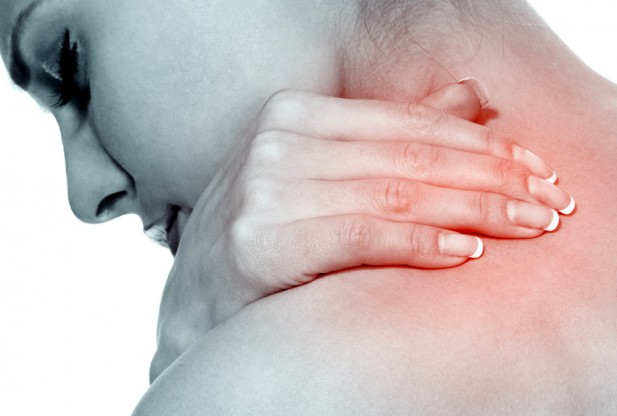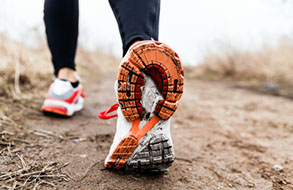Home > Muscle and Joint Pain
Links

Current Challenge
Recipes for Success
Special Announcements

Healthy Recipe Contest!
Congratulations to Cathy Sayre, the winner of the Healthy Recipe Contest!
You can see her recipe, as well as all the other excellent recipes here.
Current Challenge

Winter Weight Loss Challenge
This challenge will begin on January 1, 2016 and will end on March 31. For updates on this challenge click here.
Additional Resources

NurseLine is a health information phone line staffed around the clock by registered nurses trained to answer medical questions and offer guidance.
How to Manage Sore Muscles
and Joint Pain
By Stephanie Watson, Reviewed by David T. Derrer, MD on September 20, 2014
This article has been edited to read the full article click here.
You work hard all week, so when the weekend finally rolls around, you want to play just as hard. There's nothing like a few rounds of golf, a hike in the mountains, or an intense workout at the gym to help you feel recharged. But all of that exercise can cause soreness and stiffness that shows up a day or two later. Don't get sidelined by muscle pain. Find out the causes and treatments so you can stay on your game.
What's Causing My Sore Muscles?
It's normal to have sore muscles after you work out, play sports, or even do housework, especially if:
- You did something you're not used to, like running a marathon when you normally jog just a few miles.
- You suddenly kicked up your exercise intensity level or increased the length of your workout.
- You did unusual exercises that lengthen instead of shorten your muscle, like walking downhill or extending your arm during a bicep curl.
- These changes to your exercise routine can lead to tiny injuries in your muscle fibers and connective tissue. About a day later, you'll start to feel sore.
What's Causing My Joint Pain?
When your joints feel sore and achy, that's usually a sign of osteoarthritis. This inflammatory condition becomes more common as you get older. The cartilage that normally cushions the joints wears away, leaving the joints inflamed and painful. Joint pain can also be caused by overuse or injury, for example, tennis elbow or a knee injury caused by problem with a ligament or meniscus. Ligaments are bands of tissue that connect bones in your body. A meniscus is a rubbery disc that cushions your knee.
Treating Sore Muscles and Joint Pain
One big question a lot of people have when they're nursing sore muscles is whether to use heat or ice. Experts say indirect ice -- an ice pack wrapped in a thin towel -- is best for immediate relief.
"Heat will feel good while it's on, but it's not going to lessen the damage or make it go away anytime soon," Frese says. Goldfarb suggests you ice the sore area right after the activity to cut inflammation. Then use heat later to increase blood flow to the area. Heat also can help relieve joint pain. If you get sore muscles once in a while, you can take acetaminophen (Tylenol) or a nonsteroidal anti-inflammatory drug (NSAID) like aspirin, ibuprofen (Advil, Motrin), or naproxen (Aleve)to help ease the discomfort. Just be cautious about using NSAIDs regularly. Long-term use can interfere with your muscle's ability to repair itself, Goldfarb says.
How Do I Prevent Sore Muscles and Joint Pain?
Experts used to recommend stretching before a workout to prevent sore muscles. But research shows that stretching ahead of time doesn't do much to prevent soreness or injury. Frese says it's better to get in a good warm-up before you exercise. Stretch later, when your muscles are already warm.
A couple of natural substances are touted for preventing sore muscles, including antioxidants like vitamin C. But check with your doctor before taking high doses of any vitamin. Serious exercisers might find relief from post-workout soreness by taking in some protein. A study of marines found that protein supplements helped sore muscles after intense exercise.
Ease Into Exercise and Check With Your Doctor
One of the best ways to prevent sore muscles is by easing your way into your exercise routine. "Start off with lighter exercise and gradually build up," Frese says.
If you have a medical condition or you're unsure about your health, check with your doctor before starting an exercise program. He can help you find an exercise routine that’s safe and effective for you.
When you have joint pain, you may be tempted to curl up in bed. One of the best things you can do for your joints, though, is to exercise. "Our joints need to move to get nutrition," Frese says. Weight-bearing exercises can help strengthen the muscles that support the joint. Just watch that you don't exercise to the point of pain.
It also can help to work with a physical therapist, who can show you how to exercise safely and how to keep good posture so that you don't get injured or worsen joint pain.

